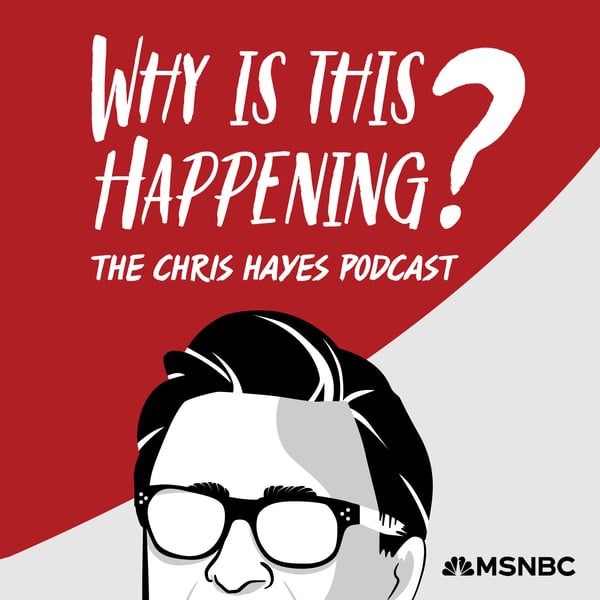What Would a Fair Society Look Like? with Daniel Chandler
Why Is This Happening? The Chris Hayes Podcast
NBCNews
4.6 • 8.9K Ratings
🗓️ 20 August 2024
⏱️ 51 minutes
🧾️ Download transcript
Summary
Transcript
Click on a timestamp to play from that location
| 0:00.0 | I think maybe people have taken for granted the sort of basics of liberal democracy and not vocally defended them, not being willing to |
| 0:16.2 | champion them as like a genuinely inspiring ideal of how to organize society and not recognize also just how like how recent and how precarious these things are. |
| 0:28.0 | So I think that's, you know, part of the problem maybe is taking those things for granted and maybe part of the solution is to really vocally defend them and I think that's you know again part of what you get from rules as a philosophy that can combine that a really inspiring defense of a liberal tolerant pluralist society |
| 0:46.9 | with also a robust critique of capitalism as we know it. night. |
| 0:53.0 | Hello and welcome to Wies. |
| 0:56.0 | It's happening with me, your host, Chris Hayes. |
| 0:58.0 | If you were born like I was, 1979 means you came of age, like into kind of political |
| 1:10.3 | consciousness right around the time of the fall of the Berlin Wall, the dissolution of the Soviet Union, you sort of came into your awareness of politics and particularly political philosophy at that moment, you were living in a moment where |
| 1:24.6 | in a sort of historically anomalous way, |
| 1:27.4 | there was not a particularly intensely contested fight |
| 1:31.5 | over the best model for governance, the best model to how to organize a society in the state. |
| 1:37.0 | Fights over that have been happening for as long as humans have been organizing themselves in various different ways and you could |
| 1:44.6 | stretch back to philosophers across many different traditions reaching back into the ancients, |
| 1:49.4 | different ways of thinking about how to organize a society, how to best organize a society. |
| 1:53.7 | There was a strange interregnum and we've interviewed Francis Fukeyama, who's sort of most associated |
| 1:59.9 | with this period on the podcast before, in which there was a kind of sense of |
| 2:04.4 | liberal market democracy is a kind of consensus an international global |
| 2:07.8 | consensus a telos a kind of end point that everything was sort of arcing towards. And I think it's fair to say that |
| 2:15.8 | has become profoundly disrupted, particularly over the last decade. And in my lifetime, the most intense debate I've ever seen that's happening both academically |
| 2:27.6 | about questions about the sort of best way it were society, but also even more honestly than |
| 2:32.2 | academically just in the political |
| 2:34.2 | formations of the time we're seeing the rise of what people call illiberal |
... |
Please login to see the full transcript.
Disclaimer: The podcast and artwork embedded on this page are from NBCNews, and are the property of its owner and not affiliated with or endorsed by Tapesearch.
Generated transcripts are the property of NBCNews and are distributed freely under the Fair Use doctrine. Transcripts generated by Tapesearch are not guaranteed to be accurate.
Copyright © Tapesearch 2025.

